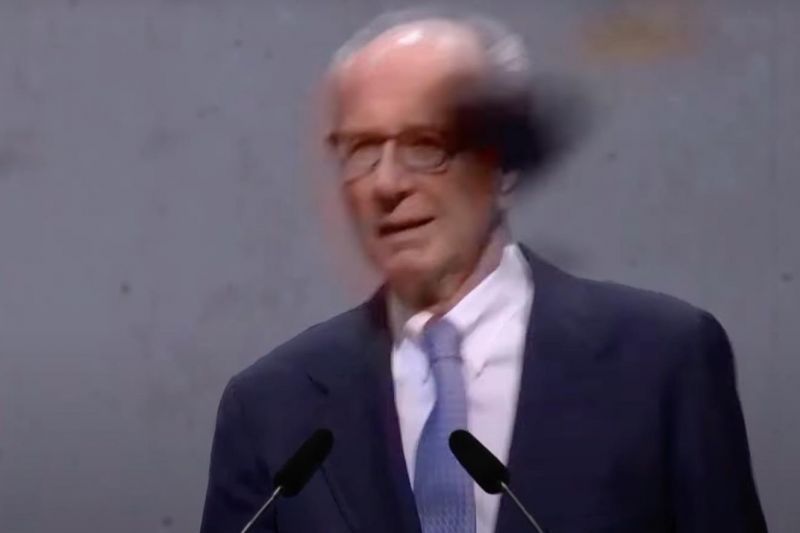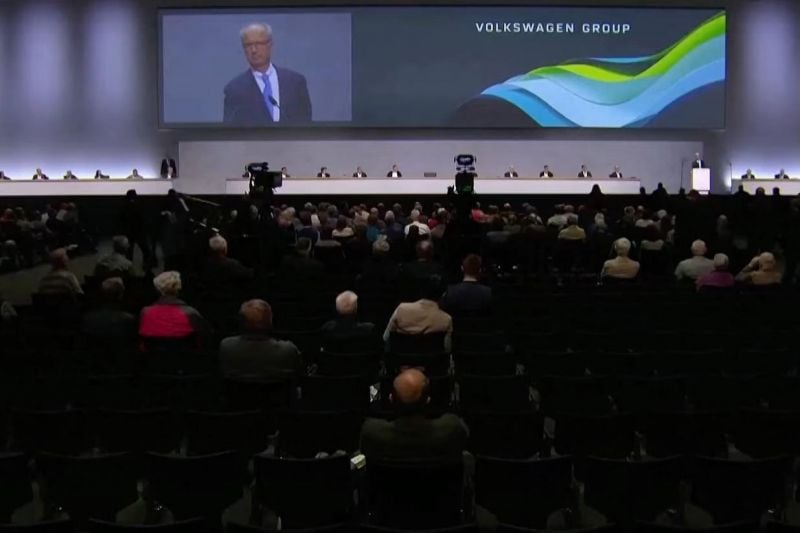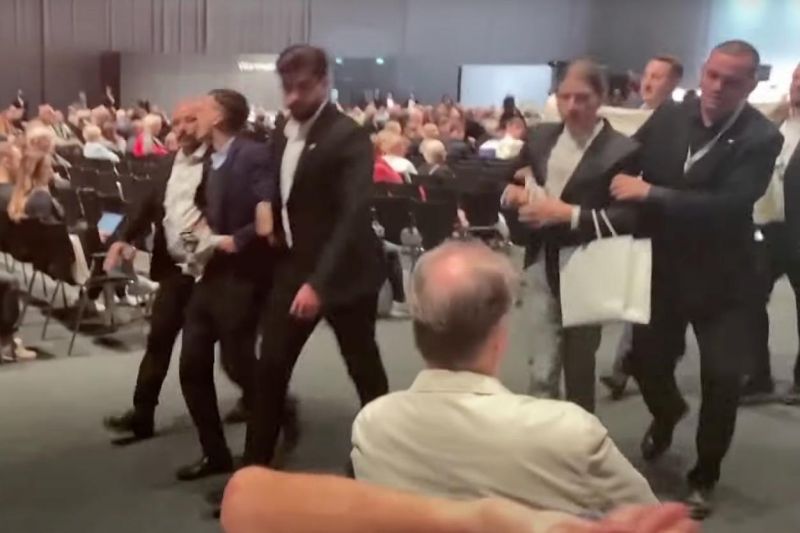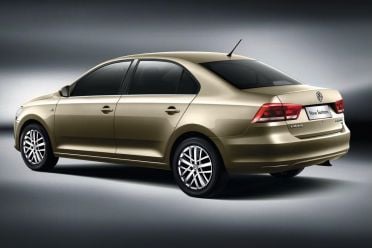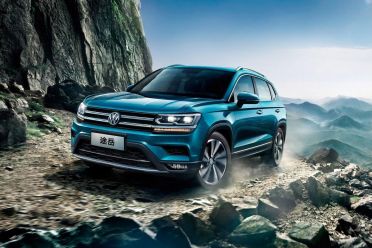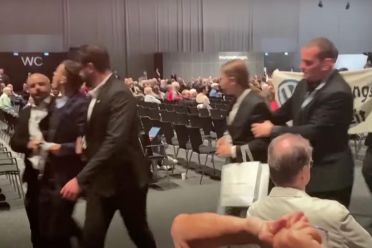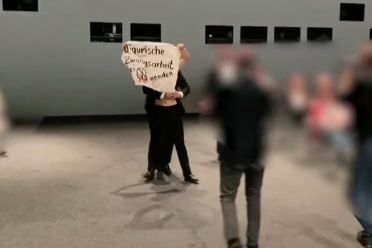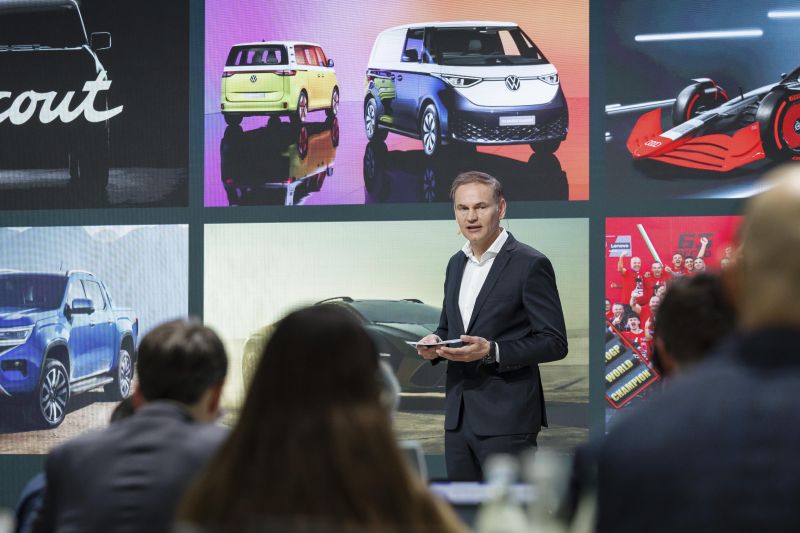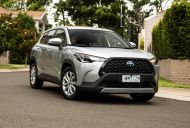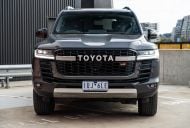Volkswagen’s annual investor meeting in Berlin was overrun by multiple activists concerned about forced labour in China and the company’s climate effects.
According to Automotive News Europe, climate activists laid on the road leading up to the venue and protested at the entrance of the building over concerns Volkswagen is “making climate-damaging concerns”.
During the meeting, concerns over VW’s Chinese plant in Xinjiang were raised based on accusations of forced labour.
About 10 protestors, including a topless women with ‘Dirty Money’ written on her back, interrupted VW Group CEO Oliver Blume’s speech. The group carried banners reading “End Uyghur Forced Labor.”
One activist threw a cake at Porsche SE chairman Wolfgang Porsche but missed, with airborne crumbs landing in the direction of VW Group Supervisory Board chairman Hans Dieter Pötsch.
On-site security rapidly escorted the activists out of the venue, with the topless woman yelling as she and her group was removed from the room.
“A constructive dialogue is important. And a general meeting offers a good opportunity for this. With the exception of a few people, everyone follows the designated guidelines,” said a spokesperson from Volkswagen.
This isn’t the first time companies who operate within the Chinese region of Xinjiang have been under the microscope based on concerns of forced labour or anti-humanitarian conditions.
Volkswagen faced similar claims in 2020 about its Xinjiang factory which is run as a joint venture with SAIC Motor.
According to Reuters, reports have surfaced from other human rights groups around mass forced labour in detention camps within the region. China denies these claims.
The United Nations last year in a report said “the extent of arbitrary and discriminatory detention” towards members of Uyghur and Muslim groups in the region may constitute international crimes as well as “crimes against humanity”.
Ingo Speich, a major Volkswagen shareholder, commented the carmaker is certain its “supply chains are clean”.
Reportedly, Ralf Brandstätter, head of operations in China for Volkswagen, came to the defence of the carmaker claiming “we do not see any evidence of human rights abuses at the plant,” and then adding that its partner SAIC Motor must agree to co-operate before an independent audit can be conducted of the manufacturing facility.
Based on a visit last year to the plant, Mr Brandstätter said, “I have no reason to doubt my impressions or the information available to me.”
It’s worth noting that based on a statement by Mr Brandstätter, the facility no longer manufactures vehicles at the plant.
VW employees at the plant instead are said to perform “chassis adjustment, electrical commissioning, in particular the calibration of the driver assistance systems, leak test, final quality conformity test and final quality acceptance”.
At the time of the statement there was no plans to resume vehicle production. Prior to ceasing production, models like the Volkswagen Santana and Tharu were manufactured there.
At the annual meeting, Mr Blume addressed shareholder concerns that China’s BYD is becoming a concerning electric vehicle (EV) competitor within the Chinese market. BYD overtook Volkswagen for the top spot for passenger cars in China earlier this year.
Reportedly, Tesla is also becoming an ongoing threat for the German manufacturer with growing sales in both China and Europe.
Mr Blume recognised that although China is moving fast towards electrification, VW has a strategy to retain its position as the market leader within China.
Reportedly, the strategy includes tailoring products for local Chinese markets and building local partnerships.
Mr Blume also had to defend his dual position as CEO of Volkswagen and Porsche as VW stock continues to decline.

